The Melbourne council blunders of 2021
From seeking a nuclear weapons ban to flying flags for romantically disconnected people, Melbourne’s councils frustrated and flummoxed ratepayers in 2021.
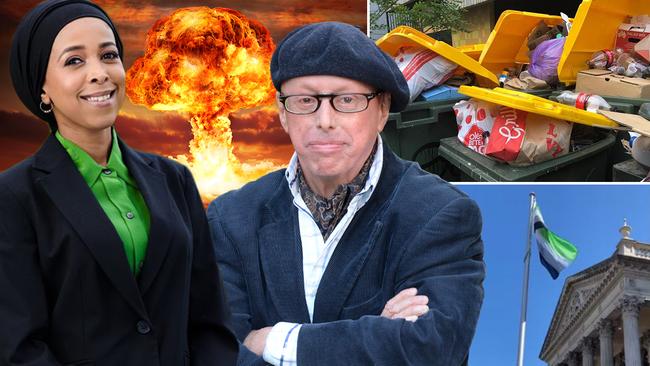
Victoria
Don't miss out on the headlines from Victoria. Followed categories will be added to My News.
Melbourne’s councils frustrated and alarmed ratepayers and businesses during the second year of the pandemic but one stood out so much the state government was moved to intervene.
The City of Yarra racked up a litany of policy bungles from a controversial banana artwork to flying an “aromantics” flag to botching basic rubbish collections.
The performance of the tone-deaf Greens-run council was considered so poor a municipal monitor was appointed to manage the administration.
The decision to introduce fortnightly collection of recyclable rubbish, instead of weekly, angered many residents who already had overflowing bins thanks to being at home throughout lockdown and receiving online shopping deliveries.
One of Yarra’s solutions was to make friends with your neighbours and give them your rubbish.
Council then dedicated land in Burnley as a location to drop off their cardboard waste. Not that handy – or eco-friendly – for a ratepayer to drive over from Carlton North.
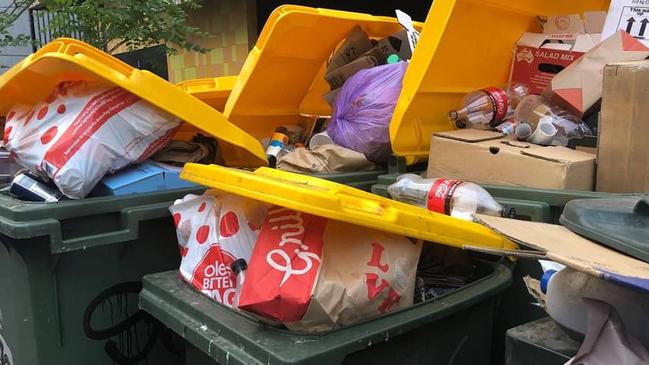
A few months later the council moved to increase fees – by up to tenfold for some – for local sports club to use public grounds. Greens councillors seemed surprised at the ensuing outcry and were forced to back down.
Similarly, they seemed bewildered by small business owners firing up over the decision to crank up fees for cafes, bars and restaurants to convert car parks into outdoor dining areas as they battled to get back business after the pandemic.
Businesses were charged up to $5000 for some spaces, even though car-share operators – seen by the Greens as driving down emissions – pay a fraction of the price for the same space.
There have been plenty of other missteps.
For example, Cr Sophie Wade – now the mayor – complained on social media about the “poor” councillor allowance she received for her public service.
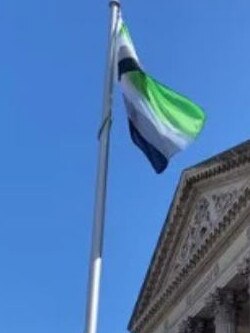
And previous mayor Gabriella de Vietri sanctioned the flying of an “aromantics” flag on Richmond Town Hall, raising questions about priorities during a pandemic.
The baffling explanation was: “Yarra flies the Aromantic flag in recognition of Aromantic Spectrum Awareness Week, acknowledging those whose experience of romance is disconnected from normative societal expectations or who experience no romantic attraction”.
Or there was the $22,000 banana sculpture in Fitzroy that aimed to make Rose St more “pedestrian friendly”. One person was so angry he tried to saw it half.
Or Yarra’s plan to pay $70,000 for six months’ to a “climate emergency” artist, which led to another backdown.
Some council meetings have become high farce, none more so than when the Greens’ Anab Mohamud, accused of bashing a trans woman outside a South Yarra nightclub, tried to interrupt the meeting but then disappeared off Zoom.
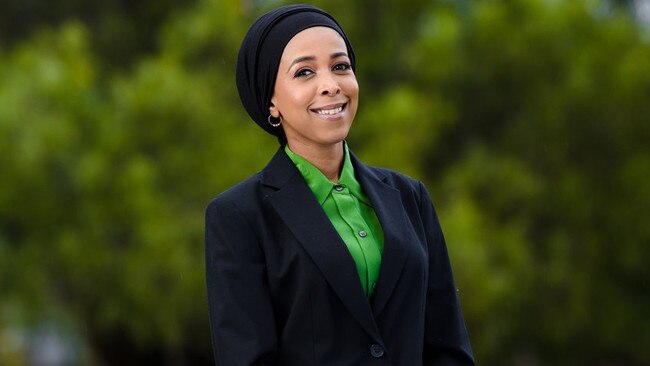
She has since taken leave until her case is resolved.
Even the vote for mayor last month took four attempts, with the online meetings becoming a bureaucratic nightmare and painful for the public to witness.
Yarra is the first Greens-dominated government anywhere in Australia, so its first 12 months of administration were seen as a test case of the party’s ability to govern.
Since having the numbers to control Town Hall after the election in November last year, the Greens have had a policy trainwreck.
RATEPAYERS BEMUSED IN YEAR OF BLUNDERS
Elsewhere, Greens and Socialist councillors in Moreland voted to change the name of its council because of links to a 19th-century slave estate in Jamaica. Opponents pointed to the high cost of the change.
A Brunswick-based council also moved to limit the height of bike jumps. Residents were told jumps in public spaces had to kept below 40cm to ensure children’s safety.
The City of Melbourne’s focus this year was on luring workers and shoppers back to the city centre, but Lord Mayor Sally Capp was the unexpected centre of media attention when she was snapped, head draped in a scarf, at an “Invasion Day” service in January.
The state government had cancelled the official Australia Day Parade but Cr Capp later said that for the Aboriginal community, it was a “day of mourning”.
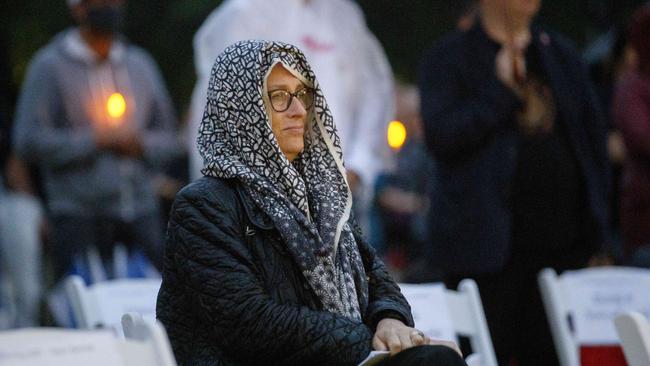
Town Hall was also in the spotlight when it was revealed that, in the past five years, council meetings had been disrupted by almost 150 cases of councillor conflict of interest issues.
The council was also lashed for splashing $1.37m of ratepayers’ cash on a program to help lonely ethnic LGBTIQ+ people, asylum seekers and young Asian women at a time when city businesses were going to the wall because of continuous lockdowns.
Darebin council angered its ratepayers by banning men from applying for a job as a streetsweeper – the advertisement called for a “non-male identified” person.
The council also tried to spearhead a ban on nuclear weapons, leaving residents baffled as to how an inner-city jurisdiction could achieve that.
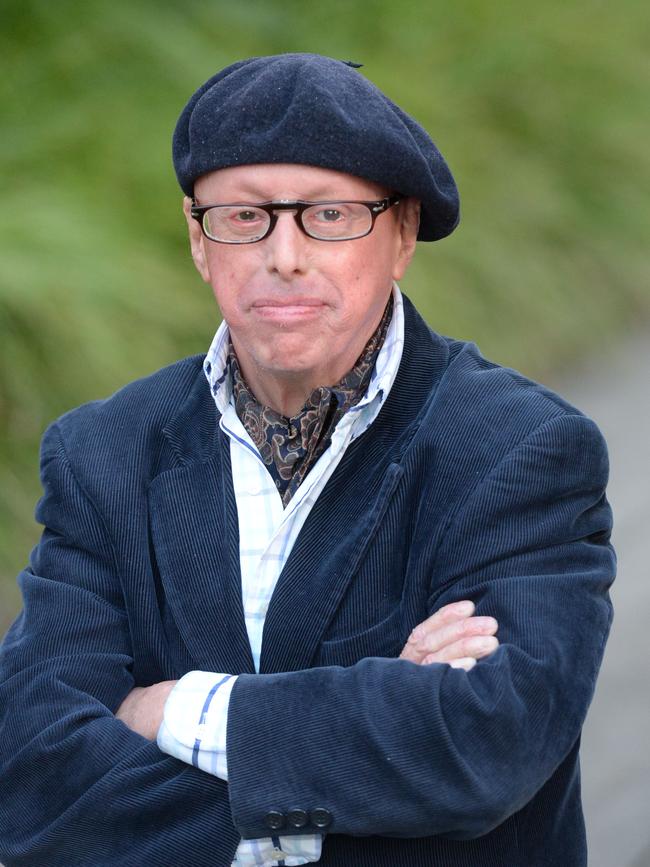

Boroondara and Greater Dandenong councils were also in the firing line for splurging more than $6000 each on “strategic planning” meetings at fancy country clubs.
Ratepayers had to foot the bill for councillors’ accommodation and meals and asked why they could not meet at their town halls – for free.
At Port Phillip, councillors backed away from a controversial bid to spend $200,000 for a Rainbow Tick accreditation, even though they had earlier signed a campaign pledge to push ahead with the move.
The accreditation is given to organisations which “understand and implement LGBTQIA+ safe and inclusive service delivery”.
Ratepayers at Maribyrnong were wondering what their councillors were smoking when it was revealed they were investigating a plan to grow, manufacture and sell medicinal cannabis to boost its coffers.
In Melbourne’s east, Manningham council agreed to spend $6000 on anti-racist street signs after a push by a Greens councillor to make people from multicultural backgrounds more comfortable.
At least 30 red signs reading “Racism Not Welcome” are being placed near shopping centres and other public spaces.





